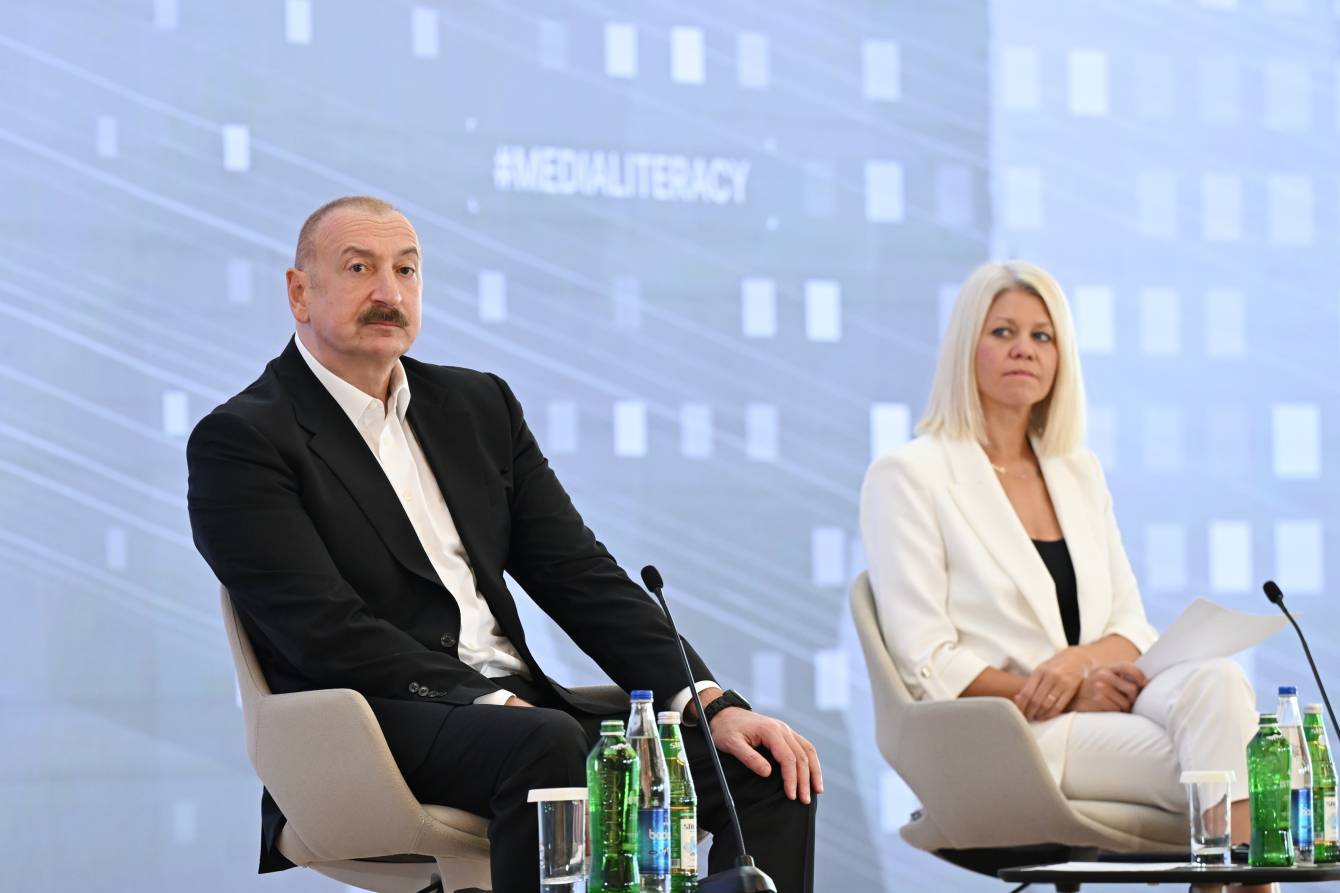Azerbaijani President Ilham Aliyev’s latest remarks on the so-called “Zangezur corridor” have drawn a sharp response from the Armenian government, further straining ongoing efforts to finalize a peace agreement between the two nations.
On July 19, speaking at the Shushi Global Media Forum in the formerly Armenian-populated city of Stepanakert, now under Azerbaijani control, Aliyev ruled out any reciprocal transit arrangement with Armenia. He insisted that Azerbaijan must be granted unrestricted access to its Nakhichevan exclave through Armenia’s Syunik province, without offering similar rights to Yerevan.
“There will be no operators, no leases, no rentals on our territory,” Aliyev said, dismissing any notion of international oversight or reciprocal transit through Azerbaijani land.
Aliyev’s stance directly contradicts Armenia’s position, which advocates mutual unblocking of regional transport routes under sovereign jurisdiction. Yerevan has proposed linking its southern town of Meghri to the rest of the country via Nakhichevan in return for transit access through Syunik.
However, Baku continues to portray the route, often referred to as the “Zangezur corridor” in Turkish and Azeri media, as an internal Azerbaijani passage, denying any need for symmetry.
The Armenian government responded through Prime Minister Nikol Pashinyan’s spokesperson, Nazeli Baghdasaryan, who condemned both Aliyev’s rhetoric and the corridor narrative as a whole.
“Armenia has never discussed, is not discussing, and will not discuss any arrangement that excludes Armenian border and customs control,” Baghdasaryan said in comments to Armenpress. She emphasized that Armenia’s “Crossroads of Peace” initiative is based on mutual respect for sovereignty, territorial integrity, and international norms. “The Azerbaijani President’s assertion that their citizens will not encounter Armenian border services contradicts the logic of negotiations and represents a concealed territorial claim,” she added.
Baghdasaryan reaffirmed that any transit through Armenian territory must follow internationally recognized procedures. She pointed to the potential for modern, contactless border technologies, such as biometric passports and digital goods declarations, to facilitate transit without compromising national security.
On the issue of transit fees, she noted that international transport would be subject to applicable tariffs, contributing to Armenia’s state budget. To ensure safe passage, Armenia is preparing a dedicated division within its National Security Service as part of its Crossroads of Peace framework.
Addressing Aliyev’s claims that Armenia is delaying railway construction, Baghdasaryan said Yerevan has proposed clear solutions, including operating Armenian trains to facilitate trade between Azerbaijan and Nakhichevan. “These proposals have been either ignored or rejected by Azerbaijan,” she said, adding that Armenia’s construction plans, such as the 42-kilometer segment in Syunik, are contingent upon reaching a formal agreement.
In his Shushi remarks, Aliyev also took aim at Armenia’s internal politics, demanding constitutional amendments and calling for the disbandment of the OSCE Minsk Group, which was formed to mediate the Nagorno-Karabakh conflict. He criticized Pashinyan’s earlier stance that “Karabakh is Armenia,” claiming that Yerevan’s constitutional framework still implies territorial claims.
Baghdasaryan dismissed these assertions, noting that Armenia’s Constitutional Court ruled in 2024 that the country’s current Constitution contains no territorial claims against neighbors. She stressed that any constitutional reforms would only be considered after a peace treaty is signed and if contradictions arise.
While both sides acknowledge progress toward a peace deal, fundamental differences persist. Baghdasaryan confirmed that humanitarian issues, including the fate of prisoners of war and missing persons, remain integral to the peace negotiations.
Turkish President Recep Tayyip Erdogan also addressed the issue of the so-called “Zangezur corridor,” expressing strong support for opening the route and emphasizing its regional significance.
“I believe that we, as countries in the region, can resolve this issue through consensus. Azerbaijani President Ilham Aliyev attaches great importance to Zangezur,” Erdogan said during a press briefing aboard his return flight from Northern Cyprus, according to Turkish media.
In response to a journalist’s question about rumors of a U.S. lease proposal for the corridor, Erdogan stated, “The Zangezur corridor will benefit not only Azerbaijan, Armenia, and Turkey, but also other countries in the region.”
He added, “I believe that we will solve this problem together,” suggesting that regional cooperation—not external intervention—should be the path forward.
Meanwhile, Iran voiced strong concerns over any attempt to establish transport routes that could infringe on national sovereignty.
Commenting on Aliyev’s statements, Iranian Foreign Ministry Spokesperson Esmail Baghaei Kani emphasized Tehran’s red lines regarding territorial integrity.
“We support expanding cooperation among regional countries, but we have always insisted that any such actions—such as the creation of routes—must not violate the sovereignty, territorial integrity, or internationally recognized borders of any country, even by a millimeter,” Baghaei said during a press briefing.
Iran has repeatedly stated its opposition to any geopolitical changes that could result from unilateral corridor projects, aligning closely with Armenia’s emphasis on sovereign oversight of its territory.


